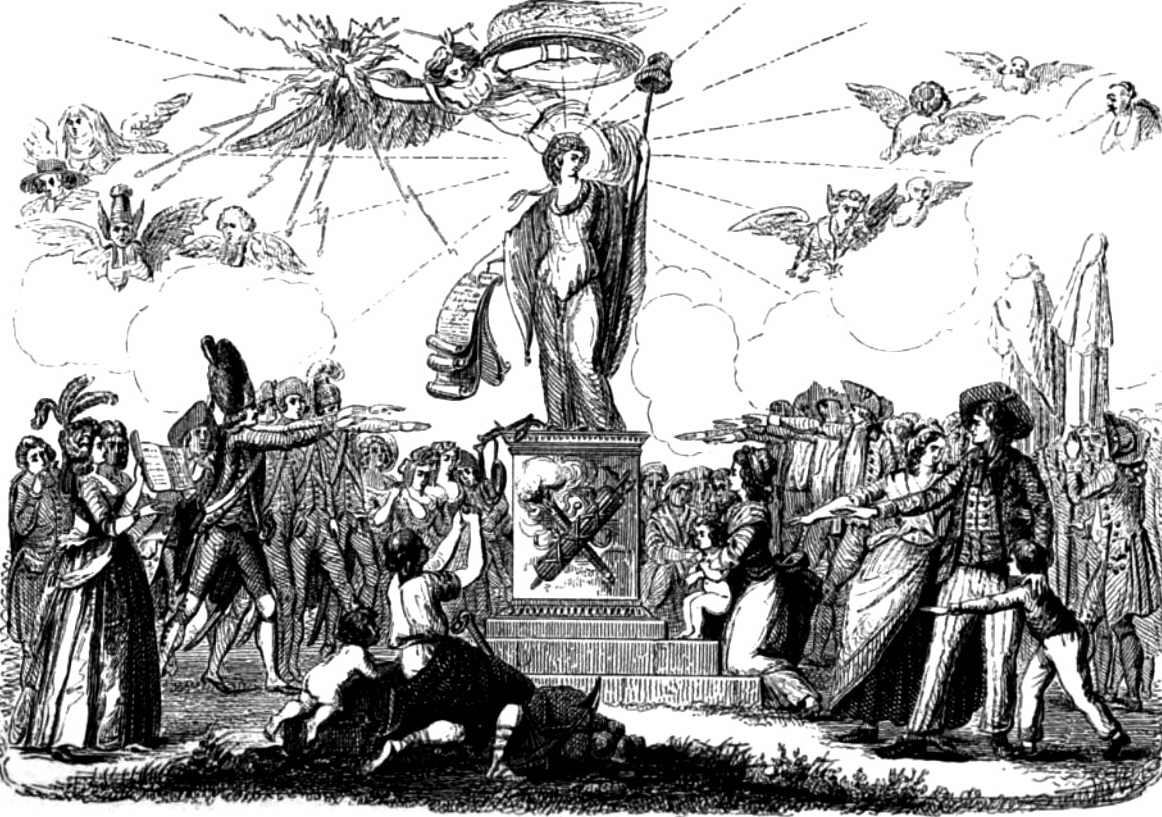|
|||
|
Philatelia.Net / French revolution / Plots / The directory «Plots»King approves ConstitutionThe short-lived French Constitution of 1791 was the first written constitution of France. One of the basic precepts of the revolution was adopting constitutionality and establishing popular sovereignty, following the steps of the United States of America. In the summer of 1789, the French National Assembly began the process of drafting a constitution. The Declaration of the Rights of Man, adopted on August 26, 1789 eventually became the preamble of the constitution adopted in September 3, 1791. The Constitution followed the lines preferred among reformists at that time: the creation of a French constitutional monarchy. The main controversy was the level of power to be granted to the king of France in such a system. Marquis Lafayette proposed a combination of the American and British systems, introducing a bicameral parliament, with the king having the suspensive veto power in the legislature, modeled to the authority then recently vested in the President of the United States. This proposal however, failed. After very long negotiations, the constitution was reluctantly accepted by King Louis XVI in September 1791. Unicameralism was adopted as per the proposal of Emmanuel Joseph Sieyès, in order to disable the possibilities of the nobility's overpowering in the assembly. Lafayette's idea of the king's veto also passed. Sovereignty, though, was clearly defined as belonging to the people: "1. Sovereignty is one, indivisible, inalienable, and imprescriptible. It appertains to the nation; no section of the people nor any individual may assume the exercise thereof." Redefining the organization of the French government, citizenship and the limits to the powers of government, the National Assembly set out to represent the interests of the general will. It abolished many “institutions which were injurious to liberty and equality of rights”. The National Assembly asserted its legal presence in French government by establishing its permanence in the Constitution and forming a system for recurring elections. The Assembly's belief in a sovereign nation and in equal representation can be seen in the constitutional separation of powers. The National Assembly was the legislative body, the king and royal ministers made up the executive branch and the judiciary was independent of the other two branches. On a local level, the previous feudal geographic divisions were formally abolished, and the territory of the French state was divided into several administrative units, Departments (Départements), but with the principle of centralism. The Assembly, as constitution-framers, were afraid that if only representatives governed France, it was likely to be ruled by the representatives' self-interest; therefore, the king was allowed a suspensive veto to balance out the interests of the people. By the same token, representative democracy weakened the king’s executive authority. The constitution was not egalitarian by today's standards. It distinguished between the propertied active citizens and the poorer passive citizens. Women lacked rights to liberties such as education, freedom to speak, write, print and worship. Keith M. Baker writes in his essay “Constitution” that the National Assembly threaded between two options when drafting the Constitution: they could modify the existing, unwritten constitution centered on the three estates of the Estates General or they could start over and rewrite it completely. The National Assembly wanted to reorganize social structure and legalize itself: while born of the Estates General of 1789, it had abolished the tricameral structure of that body. With the onset of war and the threat of the revolution's collapse, radical Jacobin and ultimately republican conceptions grew enormously in popularity, increasing the influence of Robespierre, Danton, Marat and the Paris Commune. When the King used his veto powers to protect non-juring priests and refused to raise militias in defense of the revolutionary government, the constitutional monarchy proved unworkable and was effectively ended by the August 10th insurrection. A National Convention was called, electing Robespierre as its first deputy; it was the first assembly in France elected by universal male suffrage. The convention declared France a republic on 22 September 1792. Advertising: |
|||
© 2003-2026 Dmitry Karasyuk. Idea, preparation, drawing up
|

